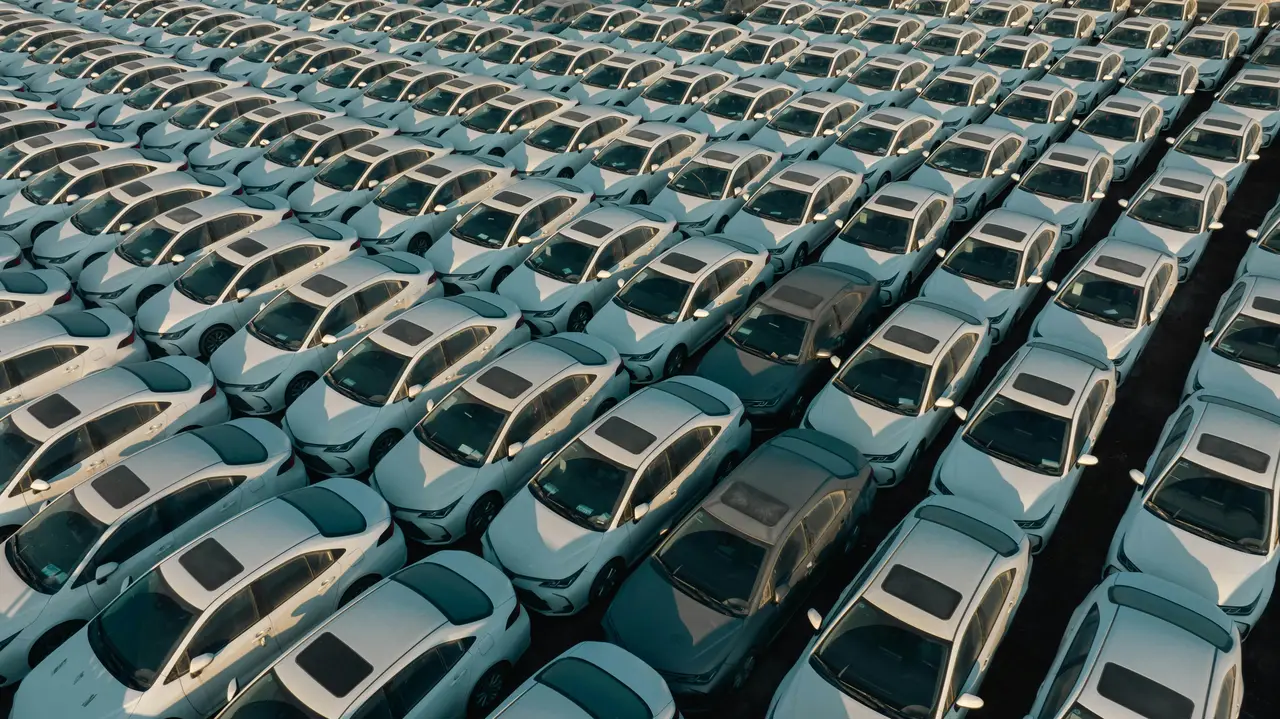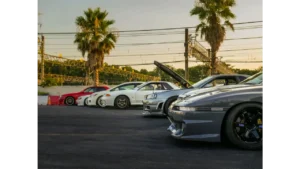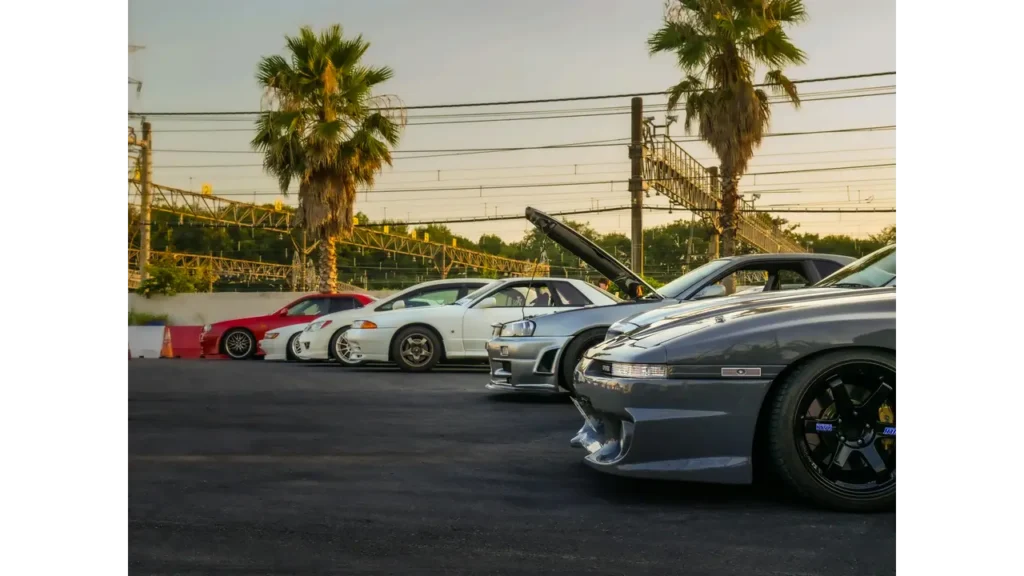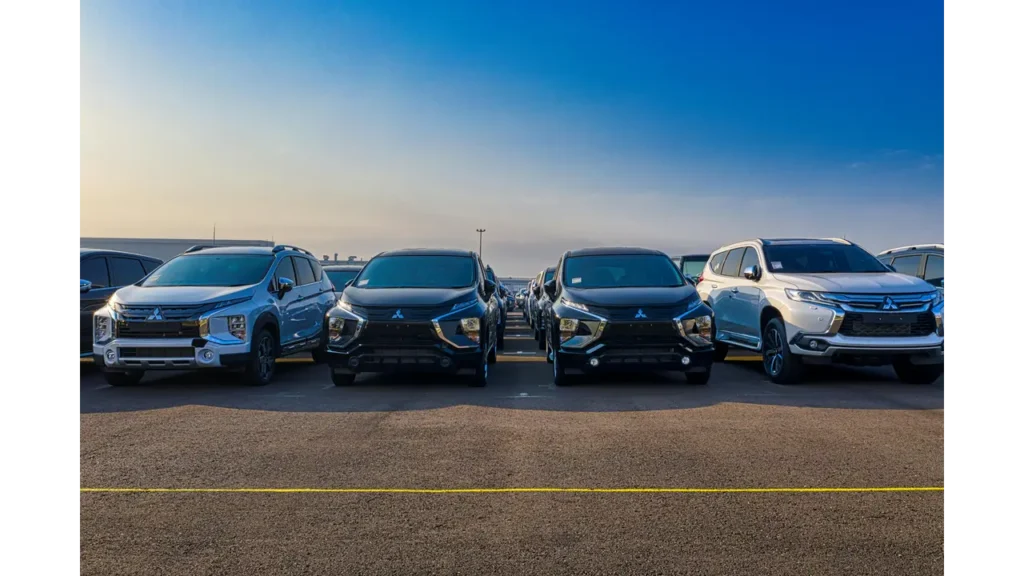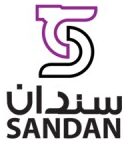Introduction
Car insurance in Oman is more than a legal necessity—it is a crucial safeguard that protects vehicle owners from unexpected costs resulting from accidents, theft, and natural events. The Sultanate’s roads, stretching from Muscat’s highways to Salalah’s coastal routes, operate under regulations that make motor insurance mandatory for every registered vehicle. Beyond compliance, the right insurance policy determines how well a driver is protected against both financial loss and procedural stress during claims or repairs.
Oman’s market offers a variety of car insurance products, each shaped by the region’s climate, driving culture, and vehicle diversity. From GCC-spec SUVs to imported sedans, every vehicle type carries a unique risk profile that insurers evaluate when setting premiums. The extreme temperatures, coastal humidity, and occasional sandstorms make specific coverages—such as natural damage and roadside assistance—particularly valuable in this environment.
Understanding these nuances helps buyers make informed choices, especially those acquiring vehicles through major hubs like the Sandan Industrial Area. Sandan, located near Muscat, integrates car dealerships, workshops, and insurance services within one ecosystem, allowing buyers to handle both purchase and policy in a single visit. This convergence reflects how Oman’s automotive infrastructure is evolving to streamline ownership and ensure compliance with national insurance laws.
Car insurance in Oman is not a one-size-fits-all product. Knowing what coverage options exist, how premiums are calculated, and how claims are handled can significantly influence ownership costs and peace of mind.
Key Takeaways
- Third-party insurance is mandatory for all vehicles in Oman; comprehensive cover offers broader protection.
- Premiums depend on vehicle specifications, driver history, and regional environmental risks.
- Climate factors such as sandstorms and heat play a key role in determining coverage needs.
- Sandan Industrial Area provides an integrated platform for buying, insuring, and registering vehicles efficiently.
Legal Requirements & Market Landscape in the Sultanate of Oman
Motor insurance is a legal obligation in Oman, enforced by the Royal Oman Police (ROP) under national traffic regulations. Every vehicle owner must hold at least a third-party liability policy to register or renew their mulkiya (vehicle registration card). This basic coverage protects against damages caused to other people or property in an accident, but it does not cover the policyholder’s own vehicle.
Comprehensive insurance, while optional, is strongly recommended by most insurers and automotive dealers. It extends protection to the insured vehicle itself, covering accidents, theft, fire, and natural disasters. Given Oman’s exposure to environmental risks such as flash floods and sandstorms, comprehensive policies are increasingly chosen even for used vehicles.
The car insurance market in Oman is competitive and well-regulated. The Financial Services Authority (FSA) oversees insurance operations, licensing, and solvency standards, ensuring that companies maintain adequate reserves for claim settlements. Leading providers such as Dhofar Insurance, Al Madina Takaful, and National Life & General Insurance dominate the market, offering both conventional and Takaful (Islamic) products.
Premiums in Oman are influenced by regional conditions, with Muscat typically offering slightly higher rates due to higher traffic density. Policy periods usually run for one year, and proof of valid insurance must be presented during registration, inspection, and transfer of ownership.
Digitalization has started reshaping the industry. Online quote platforms now allow instant premium comparison, while some insurers provide mobile claim reporting and paperless renewal options. For those purchasing cars through organized hubs like Sandan, insurance services are often integrated with registration and financing, providing convenience and regulatory assurance in one location.
Types of Car Insurance Policies Available in Oman
Car insurance policies in Oman fall into two main categories—third-party liability and comprehensive cover—each designed for different levels of risk protection and budget preferences.
Third-party liability insurance is the minimum coverage mandated by law. It compensates third parties for damages caused by the insured driver but excludes repair costs for the policyholder’s own car. This policy suits older or lower-value vehicles where repair costs may not justify a higher premium.
Comprehensive insurance, by contrast, provides extensive coverage for both the insured vehicle and third parties. It includes protection against collisions, fire, theft, vandalism, and natural events such as sandstorms or floods. Many insurers also offer add-ons that address Oman’s unique driving environment. Roadside assistance is particularly valuable during long-distance drives across desert highways, while personal accident coverage for drivers and passengers adds financial protection in case of injury.
Optional extensions can include zero-excess coverage, which eliminates out-of-pocket costs during claims, and agency repair options allowing repairs at authorized service centers. Some insurers even offer off-road coverage for SUVs used in dunes or rural terrains—an important feature in Oman’s adventurous motoring culture.
Buyers purchasing vehicles in Sandan Industrial Area can bundle insurance with their purchase, often gaining access to better premium rates and direct policy activation through licensed agents. For imported cars, especially non-GCC-spec models, insurers may adjust premiums or limit certain coverages due to differences in spare parts and risk exposure.
Choosing between third-party and comprehensive coverage depends on the vehicle’s value, driving patterns, and exposure to environmental risks. For most residents, comprehensive insurance remains the preferred option for its wider protection and long-term cost stability.
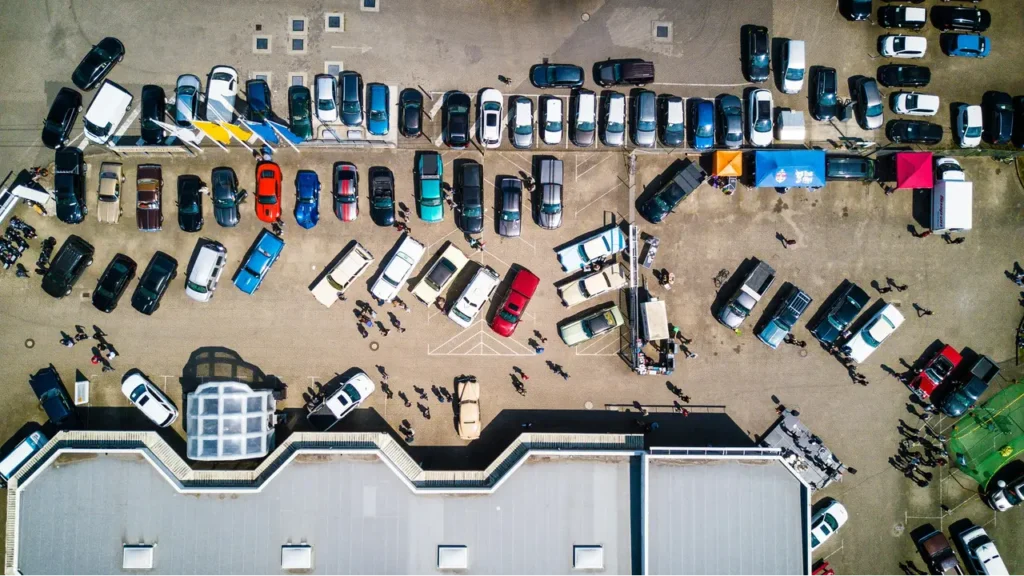
Premium Determinants: How Insurers Set Car Insurance Rates in Oman
Car insurance premiums in Oman are calculated through a detailed risk assessment process that evaluates both the vehicle and the policyholder. Insurers analyze a mix of quantitative and environmental variables to determine the likelihood and cost of potential claims. Understanding these factors helps buyers anticipate costs and choose policies that provide adequate protection without unnecessary expense.
Vehicle-related attributes are the first consideration. Make, model, year of manufacture, and engine size significantly affect premiums. Newer vehicles or luxury brands with high repair costs typically attract higher rates. GCC-spec cars are generally favored because they are better adapted to local conditions and have easier access to spare parts. In contrast, imported US-spec or Japanese models may incur additional premiums due to part availability and higher perceived repair risk.
Driver profile plays a central role. Insurers assess the age, driving history, and previous claim records of the applicant. A driver with multiple past claims or violations is considered higher risk and faces increased premiums. In Oman, the “no-claims discount” (NCD) reward system reduces premiums for drivers who maintain a clean record, creating a direct incentive for responsible driving.
Geographical and environmental factors also influence rates. Muscat, with its dense traffic, has slightly higher premiums compared to smaller cities or rural governorates. Oman’s climate adds another layer of complexity: prolonged heat, sandstorms, and coastal humidity increase the likelihood of engine wear, paint damage, and windshield cracks. These risks prompt insurers to include environmental loading in policy pricing.
Insurers also evaluate coverage level and chosen add-ons. Comprehensive policies with optional benefits—such as zero-excess cover or off-road protection—naturally carry higher premiums. However, they also provide more stability against unexpected repair costs, particularly for newer vehicles.
Typical premiums in Oman range from around 80 to 120 OMR annually for small sedans with third-party coverage, while comprehensive plans for SUVs and high-value cars can exceed 300 OMR depending on age and location. Buyers at Sandan Industrial Area often benefit from package deals where insurers collaborate directly with dealers, providing transparent pricing and instant coverage activation.
How to Compare, Buy, and Renew Car Insurance in Oman
Selecting the right car insurance policy in Oman requires methodical comparison and an understanding of provider credibility. Digitalization has made this process significantly easier, yet the fundamentals of due diligence remain critical for long-term reliability.
The first step is to collect multiple quotes from reputable sources. Buyers can use online comparison platforms or approach authorized agents representing leading insurers. These tools allow side-by-side comparison of policy benefits, exclusions, deductibles, and premium amounts. When comparing offers, attention should be paid to claim settlement ratios, the insurer’s reputation for responsiveness, and the size of their approved repair network.
Documentation is essential during policy purchase. A valid driver’s license, vehicle registration details, and inspection reports are typically required. For vehicles bought from certified hubs like Sandan Industrial Area, this process is streamlined. Dealers often partner with insurers to provide on-the-spot policy issuance, integrating registration and insurance into a single workflow. This eliminates the need for multiple visits to ROP offices and ensures immediate legal compliance.
Renewal follows a similar pattern. Policies in Oman are usually valid for one year, and renewal reminders are sent via SMS or email. Renewing early often preserves the no-claims discount and avoids the risk of lapsed coverage. During renewal, policyholders should reassess whether their coverage still matches the vehicle’s current value and driving conditions. Upgrading from third-party to comprehensive coverage is common as vehicle value or exposure increases.
Switching insurers is permitted at renewal, and competitive rates can be found by reviewing new offers annually. However, transferring the no-claims discount requires documented proof of prior policy performance. Buyers are advised to review terms carefully to ensure coverage continuity, especially when switching between conventional and Takaful-based insurers.
Proper comparison and timely renewal not only secure the best rates but also ensure compliance with Oman’s traffic laws. Combining vehicle purchase, registration, and insurance at structured automotive zones like Sandan has become a preferred approach for buyers seeking efficiency and accountability.
Claims Process, Documentation & Common Pitfalls
The claim process in Oman’s car insurance system follows a structured legal and procedural framework that ensures accountability between the insurer, policyholder, and relevant authorities. Understanding how this process works helps vehicle owners act quickly and avoid common mistakes that delay compensation.
When an accident occurs, the first step is to report the incident to the Royal Oman Police (ROP) for an official report. This document is mandatory for filing an insurance claim, whether for third-party or comprehensive coverage. Once obtained, the report, along with photographs of the damage and the vehicle registration card (mulkiya), must be submitted to the insurer’s claims department.
After submission, an assessor inspects the vehicle to evaluate the extent of damage and approve the repair estimate. Comprehensive policyholders usually have the option to choose between agency repair (authorized dealership) or non-agency workshops. Insurers with large repair networks—such as those partnering with Sandan’s industrial workshops—can process repairs faster and maintain service quality.
Common pitfalls include delays in claim notification, incomplete documentation, or performing unauthorized repairs before inspection. These missteps often result in claim rejections or partial settlements. Imported vehicles also face additional scrutiny, as certain parts or specifications may not be covered under standard policies.
Environmental damages such as sand intrusion, paint corrosion, or flood-related issues are covered under comprehensive plans but typically excluded from third-party policies. Policyholders should confirm whether their plan includes natural hazard coverage, especially for vehicles parked outdoors for long periods.
Most insurers in Oman settle minor claims within a few working days if documents are complete. Larger repairs may take longer depending on parts availability. Maintaining transparent communication with the insurer, responding promptly to requests for verification, and retaining all receipts help ensure smooth settlement.
Sandan’s ecosystem of authorized workshops and inspection centers provides an advantage for claim handling, allowing buyers to finalize both technical assessment and insurance paperwork within the same district. This integrated environment reduces downtime and supports transparent resolution of claims.
Integration of Car Purchase, Registration, and Insurance at Sandan Industrial City
Sandan Industrial City has become one of Oman’s most comprehensive automotive hubs, merging vehicle sales, registration, and insurance services into a single ecosystem. This integrated approach simplifies car ownership for residents and expatriates, providing a seamless transition from purchase to road readiness.
Located near Muscat, Sandan brings together dealerships, workshops, banks, and insurance providers in a structured industrial environment. Buyers visiting Sandan can purchase new or used vehicles directly from authorized dealers and immediately process their insurance through on-site representatives. This integration eliminates the logistical barriers that typically require separate visits to the Royal Oman Police offices and external insurers.
Insurance providers at Sandan offer both conventional and Takaful-based plans. These services are particularly beneficial for those buying vehicles on financing, as lenders often require comprehensive coverage before releasing the car. Having insurers, vehicle inspectors, and registration agents in the same location ensures compliance with all regulatory requirements in real time.
Sandan’s workshops also support post-purchase services, including repairs, maintenance, and claims processing. In the event of an accident, policyholders can coordinate assessments, insurance claims, and repair approvals within the same complex. This localized ecosystem minimizes administrative delays and improves transparency between service providers and insurers.
Moreover, buyers benefit from bundled offers, where insurance, extended warranties, and vehicle accessories are packaged together at competitive rates. These structured packages create value for both private buyers and fleet operators looking to insure multiple vehicles efficiently.
Sandan Industrial City exemplifies how Oman’s automotive landscape is evolving toward integrated service models. Its streamlined processes and concentration of licensed professionals make it a preferred destination for vehicle acquisition and insurance management.
Specialized Car Insurance Options in Oman
Oman’s diverse driving environment and vehicle mix have given rise to specialized insurance products designed for unique use cases. Beyond standard third-party and comprehensive plans, insurers now offer targeted solutions that cater to specific risk categories and consumer needs.
Off-road coverage is among the most distinctive options, tailored for Oman’s adventurous drivers who frequent desert dunes, wadis, and mountain trails. This policy extension covers vehicle damage sustained during off-road activities, excluding competitive racing. It is particularly relevant for SUV owners and those living in rural areas where unpaved roads are common.
Takaful car insurance has also gained popularity as an ethical, Sharia-compliant alternative to conventional insurance. Operated on the principle of mutual protection, Takaful pools member contributions to assist participants in need. This model aligns well with Oman’s cultural and regulatory landscape, offering both transparency and community-oriented protection.
Another specialized option is the fleet insurance plan, designed for companies managing multiple vehicles. This policy simplifies administrative tasks by consolidating all vehicles under a single agreement, often at discounted premiums. Logistics firms, rental agencies, and corporate fleets based in industrial zones like Sandan frequently utilize this type of coverage.
High-value and imported vehicles may qualify for premium coverage options that include agency repair, extended warranty integration, and zero-depreciation policies. These ensure that replacements and repairs maintain original manufacturer standards, which is vital for luxury and rare models.
Additional niche products include temporary coverage for imported vehicles awaiting registration, and short-term travel policies that extend protection across GCC borders. These options address real-world mobility patterns in a country where cross-border driving and seasonal travel are common.
By diversifying offerings to match Oman’s road conditions and consumer expectations, insurers are aligning their products with the country’s growing automotive ecosystem. For many vehicle owners, choosing specialized coverage provides security that matches both lifestyle and geography.
Emerging Trends & Future Outlook of Car Insurance in Oman
The future of car insurance in Oman is moving toward digital efficiency, personalized pricing, and closer integration with smart mobility systems. As the country accelerates its Vision 2040 agenda, technology and regulation are reshaping how risk is assessed, policies are issued, and claims are handled.
Telematics-based insurance—commonly known as usage-based insurance—is gaining traction among leading providers. These systems use GPS and onboard sensors to monitor driving behavior, including speed, braking, and mileage. Safer drivers benefit from lower premiums, while insurers gain accurate data to reduce fraudulent claims. Such models align with Oman’s growing emphasis on road safety and sustainable mobility.
Digital transformation continues to redefine user experience. Policy issuance, claim submissions, and renewals are now available through mobile apps and web portals. Insurers are adopting e-KYC (electronic identity verification) and digital payment systems, allowing instant policy activation for vehicles purchased in hubs like Sandan.
Artificial intelligence and automation are improving claim assessment and fraud detection. Machine learning models analyze damage photos, verify authenticity, and predict repair costs, reducing human error and claim delays. This transition not only improves service speed but also builds trust among policyholders.
Regulatory modernization is another defining trend. The Financial Services Authority is promoting transparency through standardized policy terms and digital documentation requirements. These efforts aim to create a more competitive, data-driven insurance environment.
Environmental adaptation remains a key focus as Oman continues to experience climatic variability. Insurers are developing new coverages that address damage from floods, high temperatures, and sand abrasion. Similarly, the growth of electric vehicles and charging infrastructure has encouraged insurers to design specialized EV policies covering battery damage and roadside recovery.
The convergence of insurance, automotive services, and technology at locations like Sandan Industrial City demonstrates how Oman’s insurance landscape is evolving into a unified ecosystem. With continued innovation and regulatory support, the future points toward smarter, more accessible, and customer-oriented car insurance solutions across the Sultanate.
FAQs about Car Insurance in Oman
1. Is car insurance mandatory in Oman?
Yes. All vehicles registered in Oman must have at least third-party liability insurance, as required by the Royal Oman Police. This policy covers damage or injury caused to others but not to the insured vehicle itself.
2. What is the difference between third-party and comprehensive car insurance?
Third-party insurance only covers damages to others, while comprehensive insurance protects both third parties and the insured vehicle against theft, fire, natural disasters, and accidents.
3. Can expats buy car insurance in Oman?
Yes. Expat residents can purchase car insurance using a valid resident card, Omani driver’s license, and vehicle registration. Many insurers in Muscat and Sandan Industrial City offer bilingual support and digital policy activation.
4. Does car insurance cover damage from sandstorms or floods?
Such damages are typically covered under comprehensive policies. Third-party plans do not include environmental risks like sandstorms, flooding, or heat-related wear.
5. How can one buy or renew car insurance in Sandan Industrial City?
Buyers can purchase or renew policies directly at Sandan’s automotive complex. Insurers and agents within Sandan issue instant coverage and integrate policy registration with vehicle purchase and inspection.
Conclusion
Car insurance in Oman functions as both a legal safeguard and a financial safety net for vehicle owners navigating the country’s diverse terrain and driving conditions. Understanding the structure of Oman’s insurance market—its legal requirements, policy types, and coverage variations—empowers drivers to make informed decisions that align with their vehicle’s value and daily use.
Integrated service zones like Sandan Industrial City have simplified this process by bringing together insurers, dealerships, and service centers within one regulated space. This integration ensures buyers can purchase vehicles, secure coverage, and handle claims through a unified, transparent process.
As Oman’s insurance landscape evolves with digital technology, personalized pricing, and sustainability initiatives, policyholders can expect more accessible, accurate, and data-driven coverage solutions. Whether insuring a daily commuter, a luxury SUV, or a commercial fleet, the right policy remains a vital foundation for responsible and secure vehicle ownership in the Sultanate.

